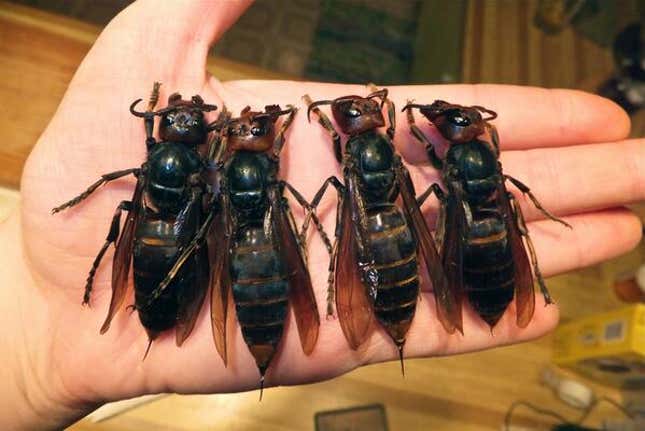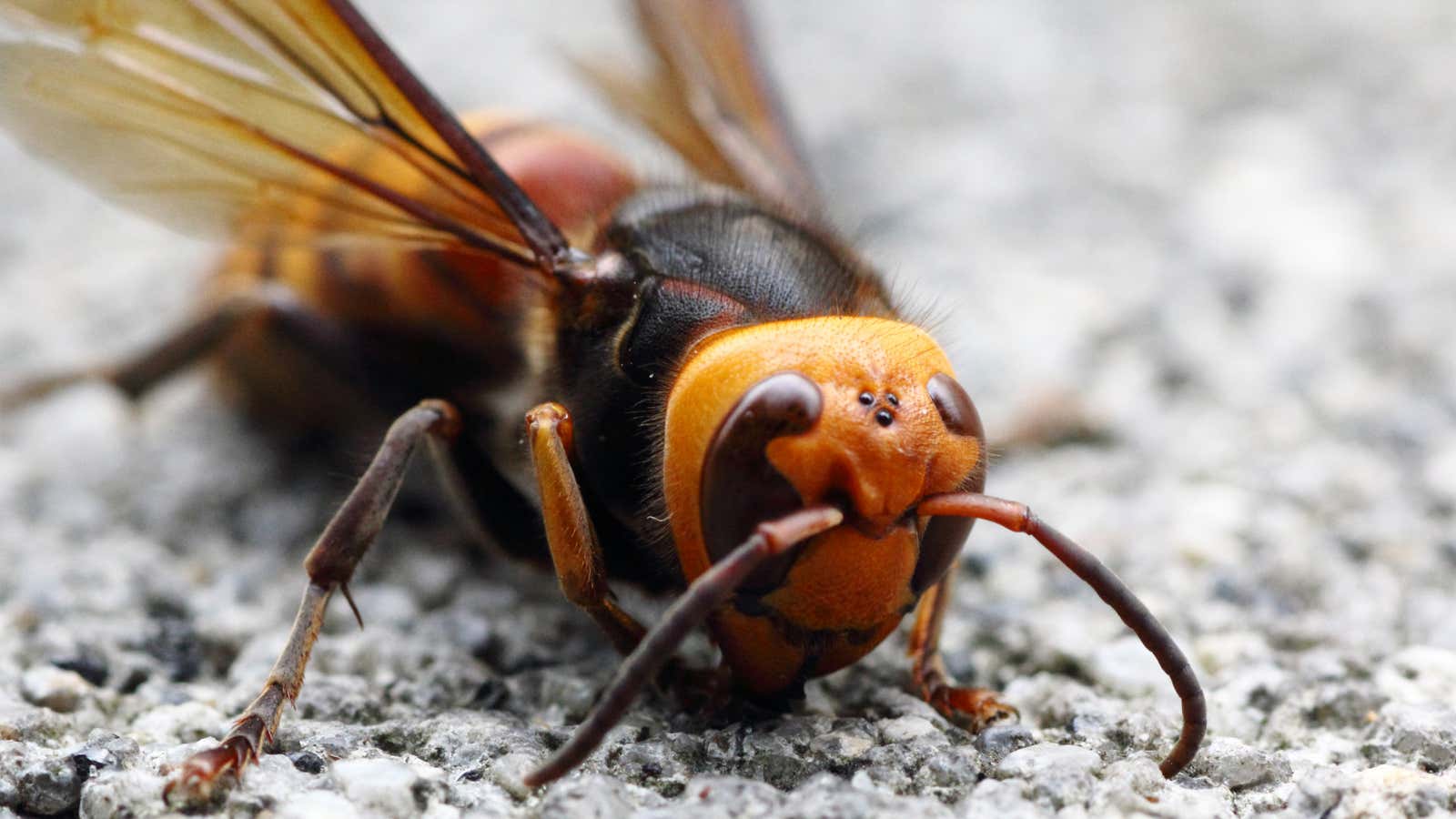Things have only gotten worse in China’s heartland, as giant killer hornets continue their swarm of terror. China’s top health authority announced today that hornet stings have killed 42 people in Shaanxi province; another 1,640 have been injured.
The future outlook is grimmer still: Giant hornets become even fiercer during mating season, in October; only in December do they finally hibernate.
It may seem odd that the death toll keeps climbing, an indication that people aren’t staying indoors or avoiding forests to avoid the nightmarish hornets. Their venom dissolves tissue and shuts down organs, and they attack in swarms of up to 5,000.

But the reasons behind Shaanxi’s climbing hornet death toll highlight not just how poor rural Chinese communities are, but how vulnerable their livelihoods—and their lives—are to the rapid changes to China’s ecology caused by global warming and urbanization.
For one, it’s harvest season. Farmers make, on average, $1,300 a year, much of which comes from September and October harvests. Either they take their chances with a gruesome stinging death, or they lose their crops.
Local leaders are also strapped for cash and equipment. Provincial emergency services have given out 50 sets of anti-hornet suits and earmarked around 7 million yuan ($1.1 million) for hornet control work (link in Chinese). But it’s not clear those funds have reached local authorities. Ankang, the hardest-hit prefecture, has only 20 anti-hornet suits, says the city’s police chief. So far, his men removed 593 hornet nests; some were stung more than 20 times.

As Xu Qifang, Ankang’s mayor, points out, massacring hornets comes with consequences. Since hornets prey on pests, a single nest can protect 330 hectares of cropland (link in Chinese), Xu said. The local hornet population means farmers don’t have to use pesticides, says an anonymous Beijing scholar (link in Chinese), which can hurt the land and endanger human health. They are also among the bee species that carry out 80% of the world’s pollination.
Shaanxi villagers link surging hornet populations with dramatic changes in local climate. Warmer weather increases hornet populations; it also makes them attack-prone. As property developers have razed Shaanxi’s forests, the number of birds—the only airborne creatures big enough to take out a giant hornet—has fallen.
